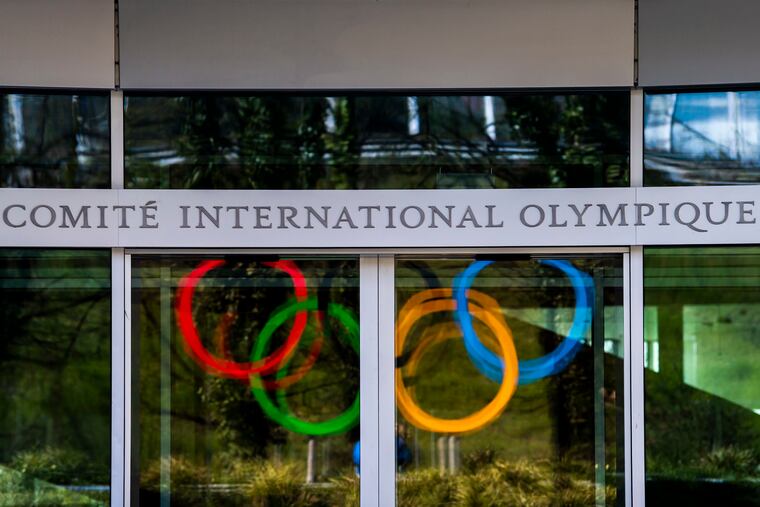The postponement of the Tokyo Olympics because of coronavirus is a blow to Comcast
The postponement of the Olympics is one of several disruptions Comcast faces due to the coronavirus pandemic. The company has closed theme parks, delayed movie releases, and suspended content production.

The International Olympic Committee will postpone the Summer Games in Tokyo, dealing a blow to Comcast’s NBC Universal, which was set to make more than $1.25 billion in advertising this year by broadcasting the games.
The IOC has agreed to push back the games until 2021 because of the coronavirus pandemic, Japanese Prime Minister Shinzo Abe said Tuesday. The virus has infected roughly 400,000 people and caused more than 18,000 deaths worldwide.
The postponement is one of several disruptions the Philadelphia media giant faces due to the outbreak. The company warned investors Tuesday that it could face a “material adverse impact" as the pandemic shuts down theme parks, delays movie releases, and suspends content production, according to a filing with the Securities and Exchange Commission, the stock markets regulator.
“This uncertainty makes it challenging for management to estimate the future performance of our businesses, particularly over the near to medium term,” the company wrote in the disclosure.
Comcast’s NBCUniversal has a multi-billion-dollar deal to broadcast the Olympics. Earlier this month, NBCUniversal said it received more than $1.25 billion in national advertising commitments for the summer games, which the company said is a new Olympic record.
It’s unclear what happens to those ad sales now that the games have been delayed.
“NBCUniversal is actively working with our advertising partners to navigate this postponement, and we’re exploring all options to best serve their brands and our consumers this year, and into 2021," an NBCUniversal spokesperson said.
In 2011, the company agreed to pay $4.38 billion to broadcast the summer and winter games from 2014 through 2020. That averages to about $1.1 billion per Olympics, though the summer games typically cost more than the winter ones.
Earlier this month, Comcast chairman and CEO Brian Roberts said Comcast had insurance to cover its expenses if the Olympics were canceled, though the company wouldn’t profit from what’s usually a boon to its broadcast and cable TV business. In 2016, Comcast raked in $1.6 billion in revenue from the Rio Olympics, including $1.2 billion from advertising, according to a quarterly earnings report.
“There should be no losses should there not be an Olympics," Roberts said on March 3. "It just wouldn’t be a profit this year.”
The company had also planned to use the Summer Olympics to promote its forthcoming streaming service, called Peacock. The service is set to debut April 15 for Comcast Xfinity customers, and launch nationwide July 15. The Olympics were supposed to start nine days later.
“Given the unprecedented obligation we all face to contain COVID-19 globally, we fully understand the decision made by the IOC, Japanese government, and the health organizations they are working with to postpone the Tokyo Olympics and Paralympics until 2021," an NBC Sports spokesperson said in a statement. "We have no doubt that the IOC and Tokyo Organizing Committee will put on an exceptional games next year, and that the Olympic flame will once again unite the world and provide a light at the end of this tunnel.”